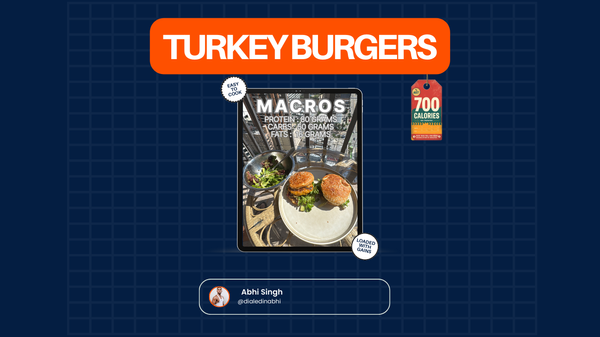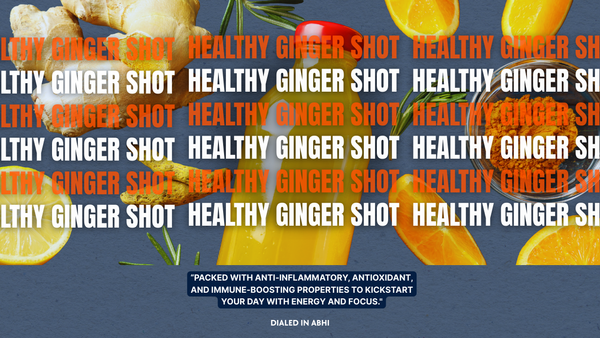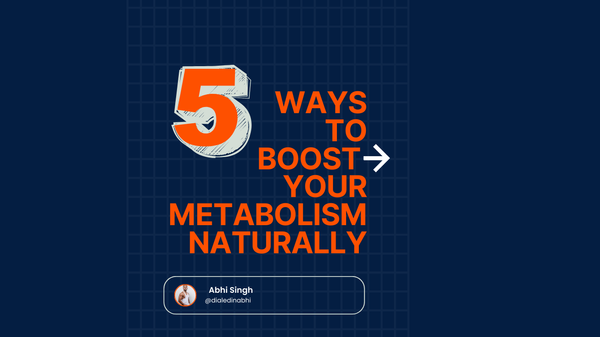Stop Thinking You Need to Starve to Lose Fat: The Truth About Calorie Deficit
What's good everyone !
If you’ve ever thought that being in a calorie deficit means eating nothing but salads and feeling miserable all the time, you’re not alone. Most people hear the word deficit and immediately think “restriction.” But that’s not what real, sustainable fat loss is about.
A calorie deficit simply means that your body is burning more energy than it’s taking in. That’s it. You don’t have to live on lettuce or run yourself into the ground to make that happen. Let’s break this down in a way that actually makes sense.
Calories In vs Calories Out — The Real Equation
Every single day, your body burns energy to stay alive and function. This total energy burn is called your Total Daily Energy Expenditure (TDEE). It’s made up of a few key parts:
- Basal Metabolic Rate (BMR): The calories your body burns just to stay alive — keeping your heart beating, lungs working, and cells repairing.
- Thermic Effect of Food (TEF): The calories your body burns digesting what you eat.
- Non-Exercise Activity Thermogenesis (NEAT): Everything you do outside of the gym — walking, fidgeting, standing up, even typing.
- Exercise: The calories you burn during workouts.
Here’s the kicker: studies show that exercise actually makes up the smallest part of your daily calorie burn. Your body burns far more through your metabolism, digestion, and daily movement.
👉 Learn more here on PubMed Central
Protein Is a Game-Changer for Fat Loss
One of the easiest ways to naturally boost your calorie burn is by eating more protein. Protein has a higher thermic effect than carbs or fats, which means your body uses more energy just to digest it.
Research shows that protein burns about 20–30% of its calories through digestion, while carbs and fats only burn about 5–10%.
👉 See this study on protein’s thermic effect
This is one reason why high-protein diets often lead to better body composition and easier fat loss. It is not magic — it’s science.
Move More Without “Working Out More”
Now here’s where it gets interesting. You can actually burn a significant number of calories outside the gym by increasing your daily movement.
Things like:
- Taking a 10-minute walk after each meal
- Standing more during work
- Parking farther from the store
- Doing chores or even fidgeting more
These small changes can add up to hundreds or even a thousand extra calories burned every day through NEAT.
👉 See Mayo Clinic research on daily activity and calorie burn
Build Muscle, Sleep Better, and Manage Stress
Here’s something most people overlook: building muscle raises your metabolism even when you’re resting. The more lean mass you have, the more calories your body burns 24/7.
On top of that, factors like sleep, hydration, and stress play a massive role in fat loss. Poor sleep and high stress can lower your metabolism and make it harder to stay consistent.
👉 Check this study on muscle mass and resting metabolism
The Big Picture
A calorie deficit isn’t just about eating less and working out more. It’s about how you live your entire day. It’s the food you eat, the way you move, how you recover, and how consistent you are.
Sustainable fat loss comes from lifestyle changes — not crash diets or extremes. When you focus on small daily wins, your body responds.
References (PMIDs)
- PMID 6058072 — Understanding total daily energy expenditure
- PMID 17585026 — Protein thermic effect and metabolism
- PMID 18030491 — Role of NEAT and activity in fat loss
- PMID 22150425 — Muscle mass and resting metabolic rate
Final Thoughts
If this helped clear things up for you, remember that your journey doesn’t need to be extreme — it just needs to be consistent.
You already have everything you need within you to make this happen.
Focus on being one percent better every day.
Thanks for reading, and if you want daily motivation and science-based fitness tips, follow me on Instagram @DialedInAbhi
Stay consistent Stay disciplined Stay Dialed In.



